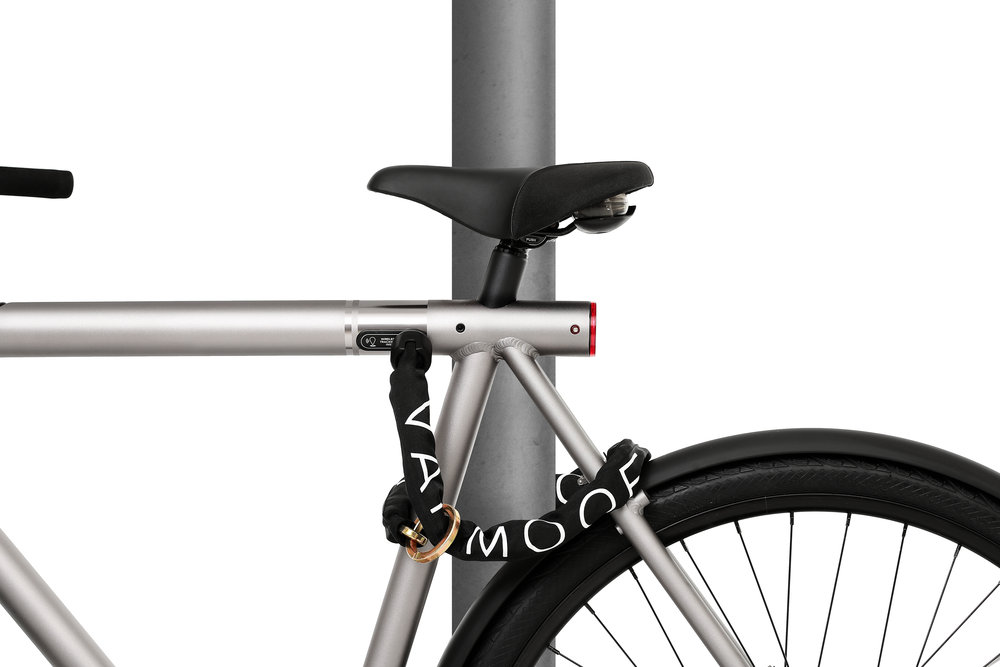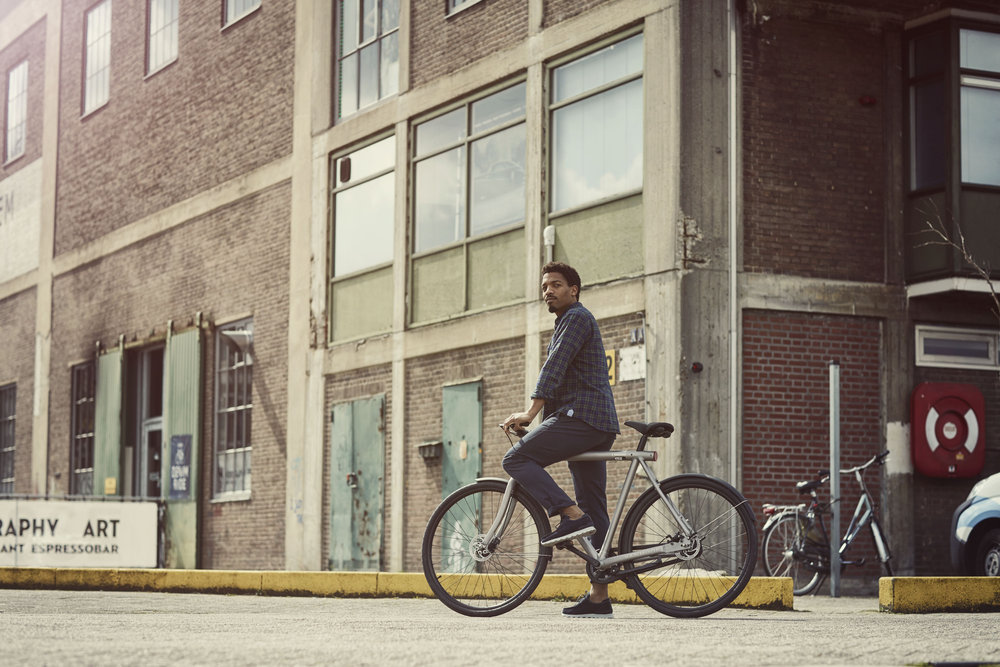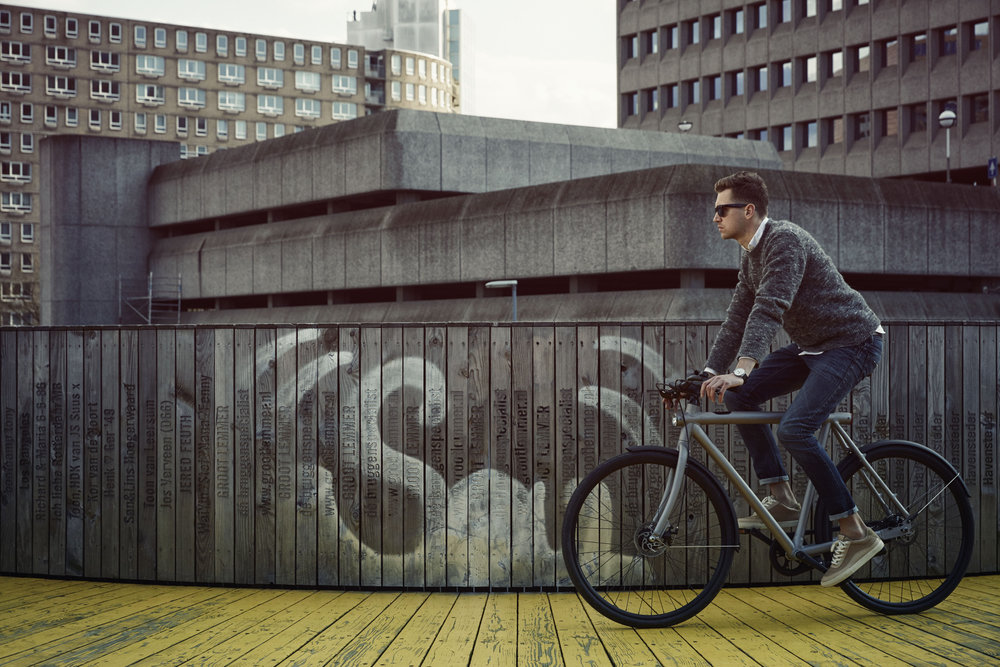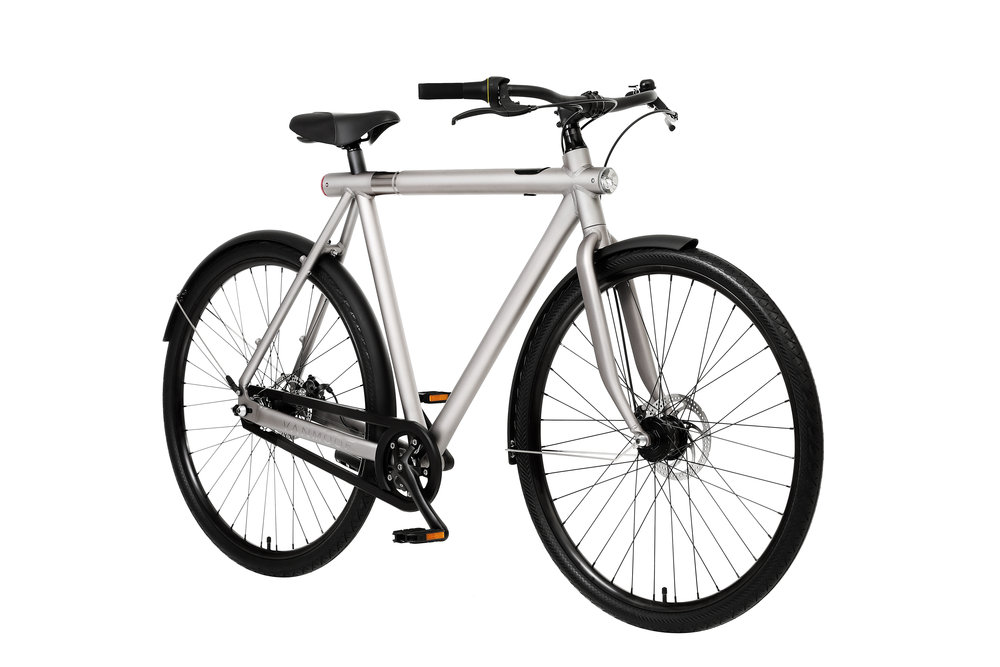According to the surprisingly generous deal offered by Dutch cycle firm VanMoof on its newest high-tech city bike, it most definitely would be worth spending out on a new one. Why? Because the company says if the bike’s nabbed within two years of purchase, it’ll track it down and return it to you in less than two weeks. And if it fails to find it, it’ll replace it with a new one for a fee of just €98 (about $110). Pretty good for a $1,000+ bike.
VanMoof believes the SmartBike’s innovative app-controlled keyless lock, which is built directly into the frame, will be enough to deter most ne’er-do-wells who’re on the hunt for a free ride home. But should a particularly determined thief manage to find a way around it, all you need to do is notify VanMoof’s recovery team via the bike’s app and it’ll spring into action.
With help from the SmartBike’s incorporated GPS technology, the company is confident it’ll be able to get your bicycle back to you in less than 14 days. And if for some reason it can’t locate it, it’ll give you a new one instead. Amsterdam-based VanMoof, which sells its bikes in more than 30 countries, including the U.S., calls the promise its “peace-of-mind guarantee.” The company acknowledges that the offer is “a big business risk,” but adds that it’s “one we are willing to take.”
“We at VanMoof believe riders have shouldered the burden of bike theft for long enough,” said Taco Carlier, who, along with his brother Ties, founded VanMoof in 2009. “It’s great that there are thousands of engineers around the world working day and night to improve racing bikes and mountain bikes, but we found there’s been little focus on improving city bikes. That’s why we’re committed to solving major problems like bike theft – and to encouraging more urban commuters to swap four wheels for two.”
Thanks to its anodized aluminum frame, VanMoof’s SmartBike tips the scales at just 14.3 kg (31 pounds), helpful for city cyclists who may have to navigate steps or other obstacles during urban rides. It also incorporates front and rear lights, disc brakes, and an enclosed drive chain.
VanMoof’s SmartBike, available in gray and black, is available from today at special pre-order prices starting at $1,098 for the three-speed model and $1,298 for the eight-speed design. In December, the bike lands at its Brooklyn store with a $1,798 price tag.
“Be one of the first in the world to put bike thieves out of business,” VanMoof proclaims on its website. It certainly sounds like a worthy cause, though let’s just hope its tracking techniques and refund plan are solid enough that it won’t end up putting itself out of business first.









